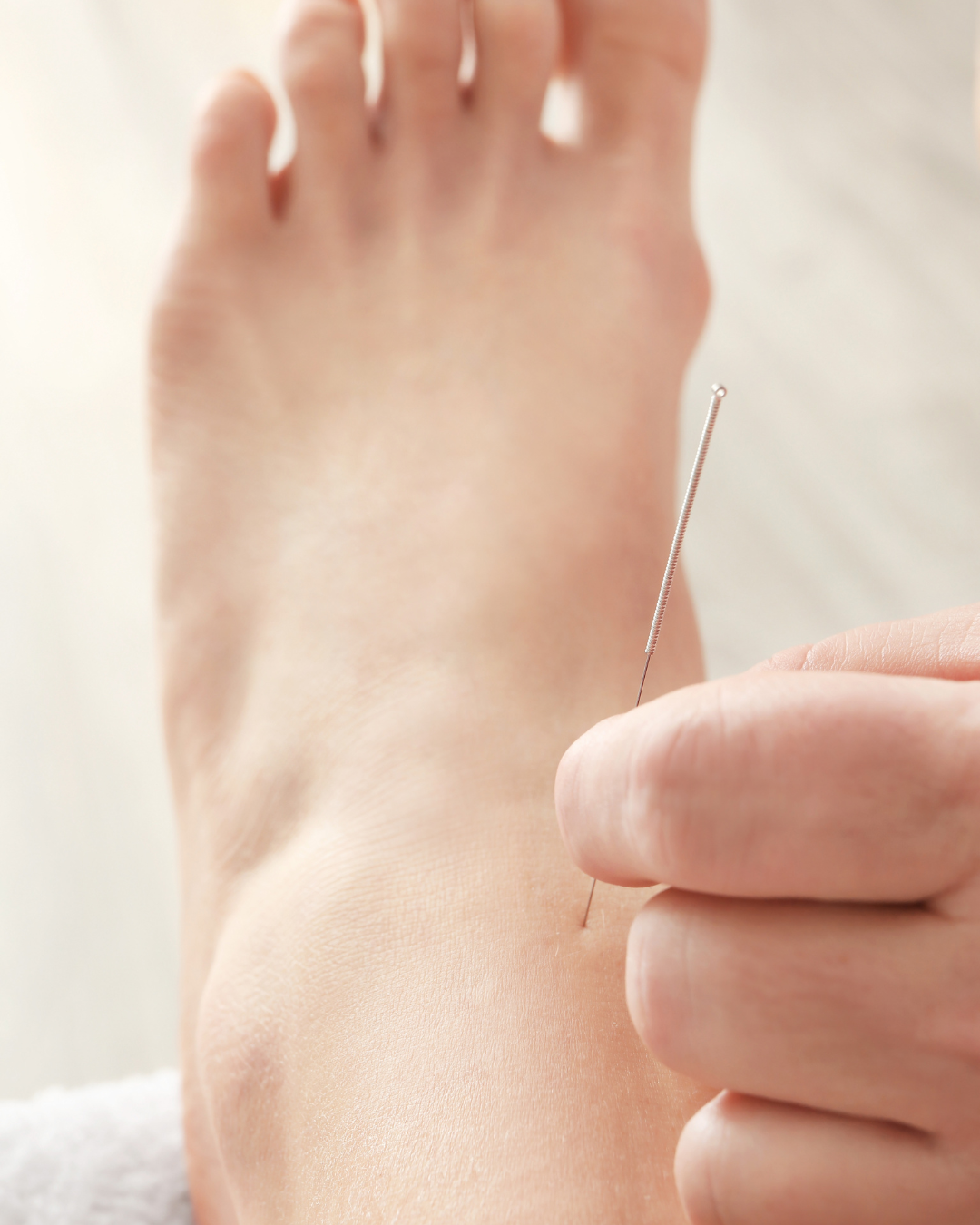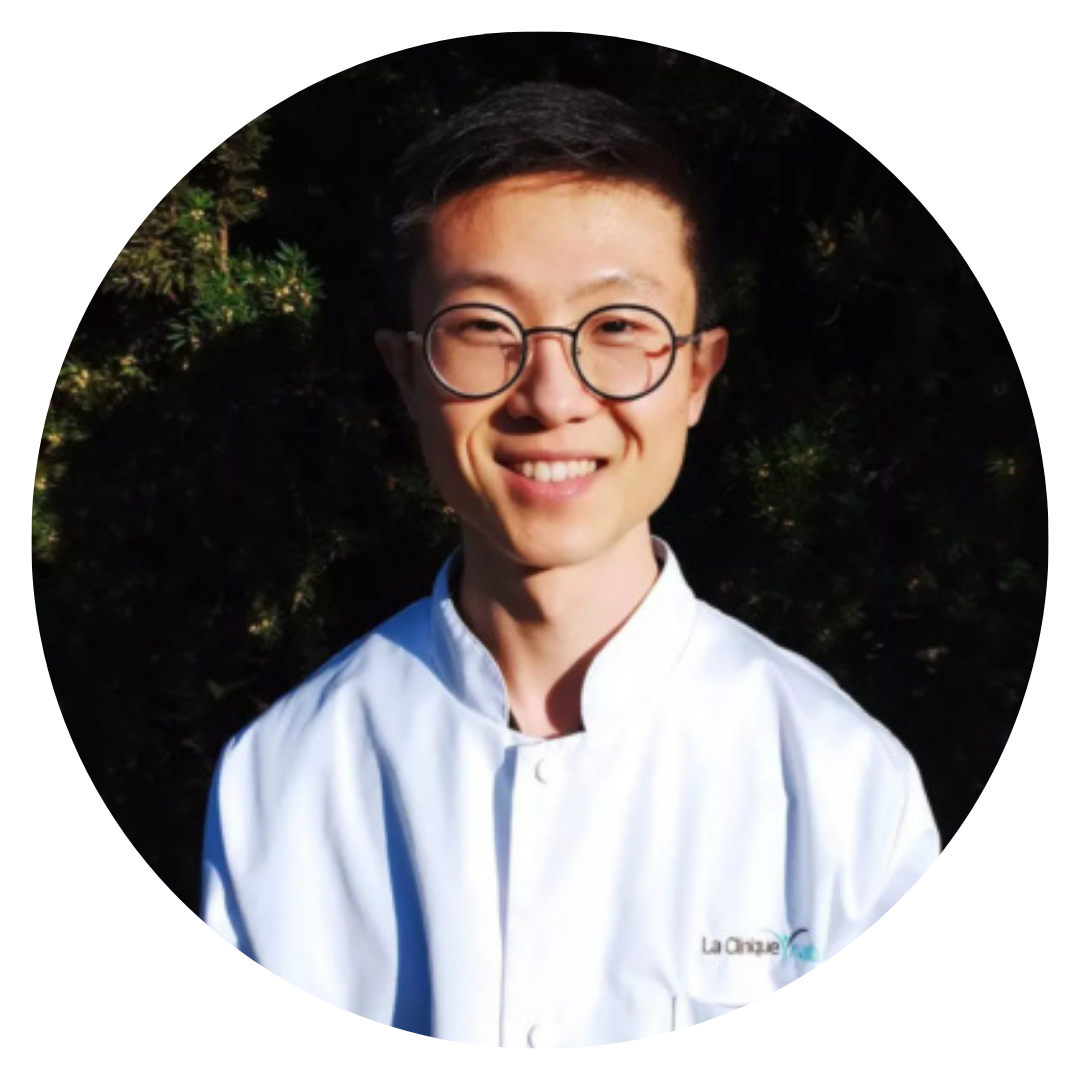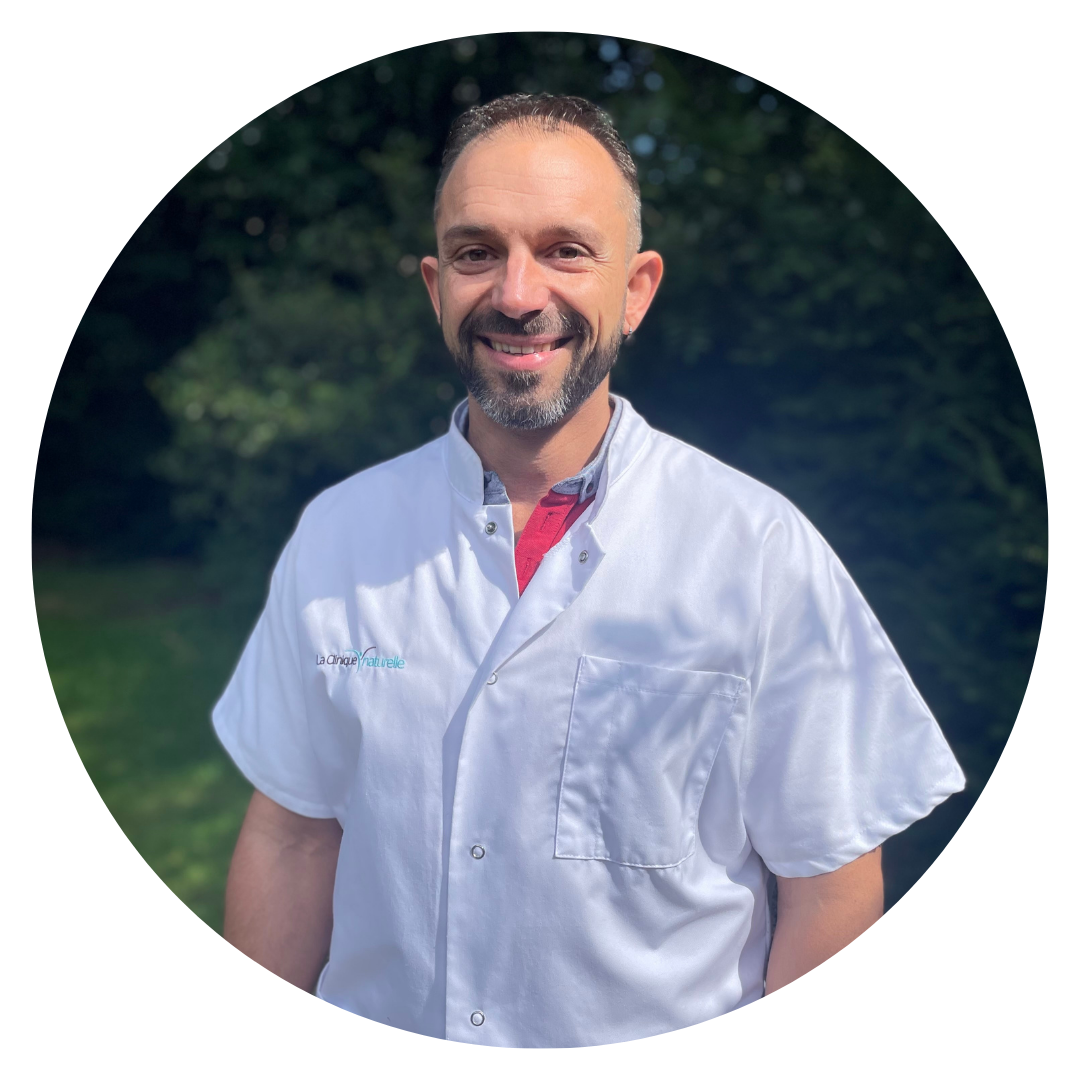Méthode de la Médecine Traditionnelle Chinoise (MTC) la plus pratiquée, l’acupuncture consiste à stimuler certaines zones du corps avec de très fines aiguilles sur des points précis, appelés méridiens. Son objectif est de rétablir l’équilibre énergétique du corps en améliorant la circulation de l’énergie “Qi” dans ces méridiens.

L’acupuncture » à la Clinique Naturelle avec Eric Zhao et Mickael Lett, thérapeutes agréés ASCA et RME.
Qu’est ce que l’acupuncture?
L’acupuncture est une discipline majeure de la médecine traditionnelle chinoise qui date de plus de deux mille ans.
Pour les anciens chinois, il y a dans le corps physique un ensemble de canaux qui relient les organes entre eux, à la manière d’une carte électronique. Ces canaux sont désignés sous le nom de méridiens d’acupuncture.
Une énergie qu’on appelle le Qi, en chinois, circule dans ces méridiens et nourrit l’ensemble du corps. Si l’énergie se bloque et ne circule plus, les organes et les cellules ne sont plus approvisionnées selon leur besoin.
Plusieurs facteurs peuvent provoquer des déséquilibres ou des blocages du Qi, déclenchant ainsi des symptômes voire des pathologies. Ces facteurs peuvent être d’origine diverses comme les émotions accumulées, une alimentation inappropriée, le surmenage ou encore les conditions météorologiques.
Le but de l’acupuncture est de fluidifier et rééquilibrer la circulation d’énergie afin d’alimenter les cellules et les organes.
Les études récentes sur l’acupuncture montreraient qu’elle a pour effet de libérer de l’endorphine, des corticostéroïdes, de la sérotonine et d’autres neuro transmetteurs du système nerveux central.
Comment peut vous aider l’acupuncture?

Système respiratoire et lymphatique
rhume, sinusite, asthme, rhume des foins, grippe, angine, otite, covid

Système gynécologique
aménorrhée (absence de règles), dysménorrhée (douleurs de règles), cycle irrégulier, syndrome prémenstruel, infertilité, grossesse et post-partum

Système cardiovasculaire
hypertension, hémorroïdes

Système musculaire
lombalgie, dorsalgie, tendinite, torticolis

Système urinaire
cystite, incontinence
Comment se déroule votre séance d’acupuncture?

Une séance d’acupuncture avec Eric ZHAO
Son anamnèse :
Eric commence sa séance par une anamnèse, au cours de laquelle il examine le patient pour déterminer les déséquilibres énergétiques. Visuellement, en vérifiant, sa langue, ses yeux, son teint et ses oreilles. Puis il contrôle son pouls et effectue une palpation sur son ventre.
Ensuite il prend un temps avec le patient pour échanger et déterminer les objectifs de consultation.
Son traitement :
Eric pose les aiguilles et laisse le patient se détendre pour bénéficier pleinement de l’effet de la stimulation des points d’acupuncture. Il accompagne ses patients durant toute la séance pour répondre aux éventuelles interrogations, et si nécessaire, profite de ce temps pour prescrire une formule de plantes qui viendra compléter la prise en charge. (Pour en savoir plus vous pouvez consulter notre page : Pharmacopée
Dans le cas d’une prescription de plantes, Eric s’occupe de commander la formule dans un laboratoire. Vous débuterez votre traitement à réception de celui-ci, et après avoir reçu les consignes et la posologie exacte.
L’acupuncture peut également être accompagnée de moxibustion, de ventouses, de pharmacopée et d’auriculothérapie.
Son suivi :
Le temps du traitement, Eric préconise généralement une consultation toutes les 3 à 4 semaines. Cependant, il peut arriver pour certaines pathologies, qu’il recommande un suivi plus régulier. La fréquence des consultations sera abordée avec Eric à la fin de votre premier rendez-vous.

Une séance d’acupuncture avec Mickael Lett
Son anamnèse :
Mickael débute sa prise en charge par une anamnèse, au cours de laquelle il évalue différents aspects de la condition physique du patient afin d’évaluer les déséquilibres énergétiques.
Il écoute les symptômes évoqués et échange avec le patient sur les raisons de la consultation et ses objectifs.
Son traitement :
Chaque séance dure 1 heure. Les soins sont dispensés dans une atmosphère calme et paisible. Il est important que le patient se sente à l’aise et apaisé pour bénéficier de tous les bienfaits de la séance. Lors de la pose des aiguilles, le patient ressent le « De Qi » (obtention du Qi), sous forme de sensation de chaleur, de froid, de circulation d’énergie, voire de léger coup d’électricité. Cela signifie que les aiguilles sont bien placées. Généralement les patients se détendent pendant la pause d’aiguille et certains en profitent pour faire une sieste !
En fonction du bilan effectué et de vos besoins, Mickael peut proposer le traitement, ou la combinaison de traitements, le ou les plus adaptés (Acupuncture, pharmacopée, massage TuiNa).
Son suivi :
Afin d’optimiser l’efficacité du traitement en cours, Mickael préconise un suivi régulier. L’objectif est de pouvoir stabiliser l’équilibre du Qi et du travail en cours.
Nos thérapeutes en acupuncture
L’ acupuncture on en parle dans cet article « Comment l’acupuncture peut-elle vous accompagner pendant votre grossesse et votre post partum ? »
Article d’Eric Zhao, thérapeute en medecine traditionnelle chinoise – diplomé de l’université de médecine traditionnelle chinoise de Shanghai.
Pendant la grossesse et le post partum, le corps et l’esprit peuvent être soumis à rude épreuve.
Nausées « matinales », douleurs de dos, ballonnements, remontées gastriques, fatigue, stress… des inconforts qui peuvent vite devenir insupportable.
L’acupuncture, branche de la médecine chinoise millénaire, a fait ses preuves pour soulager les nombreux inconforts de la femme enceinte, mais aussi l’aider à préparer sereinement l’accouchement et reprendre ses forces après celui-ci.
Elle peut également aider dans le cadre d’une fausse-couche.







